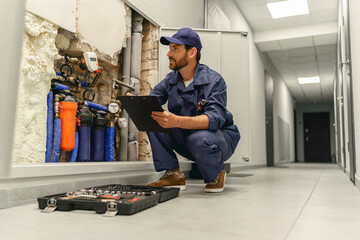Restore Draper is essential to keep the property healthy. Standing water and dampness create ideal conditions for bacteria, mold, and fungus to grow in the home, which can cause respiratory problems and other illnesses.
Mitigation and restoration services are the best ways to avoid these problems. But how do you choose the right company?

When it comes to cleaning or restoring your home, you want to be sure that the professionals working on your property have the right skills and expertise. One way to ensure this is by checking for IICRC certification. This is a program that sets cleaning and restoration standards that all members must follow. This means that when you hire an IICRC-Certified company, you know that they will use proven standardized procedures and uphold the highest levels of integrity and professionalism.
IICRC certification can be a great benefit for both homeowners and businesses alike. It can give you an edge over your competition, and it can also help improve customer satisfaction. In addition, IICRC-certified companies are required to carry liability insurance and a written complaint policy.
The IICRC offers over 20 different qualifications in the fields of cleaning and inspection, including a water damage restoration technician (WRT) course. You can take this course in-person at a variety of locations throughout the country. It can also be taken online if you are unable to attend in-person classes. The WRT course is a 3-day class that teaches you the basics of the drying process. It is recommended that you also take the Applied Structural Drying (ASD) class after taking the WRT to further enhance your knowledge of drying processes and techniques.
The IICRC also provides courses on carpet repair, color repair, trauma and crime scene cleanup, and applied microbial remediation (which covers mold). Upon completion of these courses, you will receive an IICRC certificate that proves your skills. In addition, IICRC-certified professionals have access to a network of resources that can help them advance their careers. They also have the ability to teach other industry professionals new methodologies and techniques. As a result, they can have a positive impact on the inspection, cleaning, and restoration industry as a whole.
The Institute of Inspection Cleaning and Restoration Certification (IICRC) is a governing body that sets industry standards for water damage restoration professionals. It offers a variety of certifications, including Water Restoration Technician (WRT), Applied Structural Drying (ASD) and Mold Remediation. Many insurance companies require or prefer to work with IICRC-certified technicians for restoration projects. This can help to streamline the claims process and ensure that all parties are working with best practices.
Aside from the IICRC, other certifications are important for those in the restoration industry. They may include certifications from the RIA and other professional associations. These credentials are not required by law, but they can help to establish a company’s credibility and professionalism. In addition, they can indicate a commitment to ongoing education and the advancement of restoration techniques.
These certifications are vital for maintaining industry standards, ensuring technical expertise, instilling consumer confidence, and promoting professionalism within the inspection, cleaning, and restoration industry. They also ensure that consumers receive quality service and are treated with respect and dignity.
In addition to IICRC certification, other qualifications to consider when choosing a restoration company include licensing and accreditations. Most states do not have specific licensing requirements for restoration professionals, but some do require that a contractor have an active state license to operate in the business. A license from the state can ensure that a company follows all laws and regulations when performing restoration services.
Other certifications to look for include a 10 hour OSHA course, which teaches workers basic awareness training about workplace hazards and how to handle them. In addition, it helps employees understand the risks of certain chemicals and how to properly use equipment to avoid them. In the future, additional certifications may include training in moisture detection and digital monitoring technologies.
While there are no universal credentials for the restoration industry, some stand out above others. The most common are IICRC and RIA certifications. These credentials are recognized globally as the highest standards for restoration and inspections. They provide customers with a level of confidence and assurance that the company is using the latest techniques to restore their properties.
A reputable company has extensive experience dealing with water damage, mold growth, and other disasters. This means that they understand the complexities of working with insurance providers and know how to properly document damage for an accurate claim. Moreover, they have the tools and equipment to quickly assess the damage and determine what steps are needed to restore the property. This ensures that customers are aware of what’s happening at all times and can feel comfortable with the process. Additionally, these companies address underlying issues to prevent similar problems from occurring in the future. This helps to reduce downtime and repair costs.
When your reputation is damaged, it can be difficult to know how much damage has been done. You can use online reputation tools to assess your business’s current status and determine the best course of action moving forward. Once you have a clear understanding of the extent of the damage, it’s time to start repairing your reputation.
Using social proof on your website is a powerful way to show potential customers that you’re a reputable restoration company. This will help build trust and encourage customers to choose your services. Having responsive customer support is also important for maintaining a good reputation. Using a text messaging tool like Podium Webchat allows you to connect with your customers in real-time and address any issues quickly and efficiently.
Reputation damage is a common concern for businesses of all sizes. It can be caused by anything from a scandal to bad reviews. Regardless of the cause, it’s crucial to protect your reputation and make sure you have a plan in place to respond to any potential threats. Whether you’re a politician, multi-national corporation, or local business, reputational damage is always a risk for anyone in the public eye. For this reason, forward-thinking corporate comms teams have a plan in place to repair and restore their reputation should the need arise.

